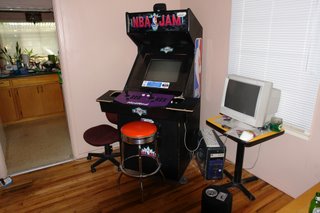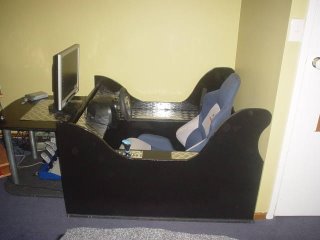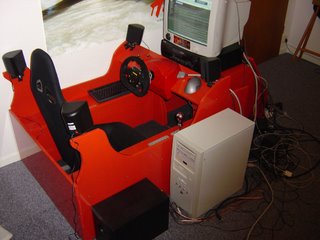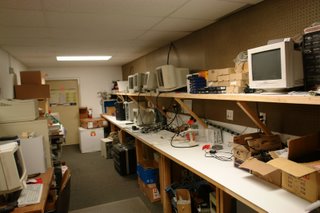 rant/
rant/I have been into gaming, on and off, for most of my life. If you would have asked me 5 years ago where I thought my gaming future would go, I would have seen nothing but MMORPG's in store. However as of late, I have found that I don't get the same sense of "awe" that I once was infused with through the likes of Ultima Online. That feeling of adventure, that the world around you is alive with people, just waiting to create new experiances with eachother.
Is this a product of getting older, and not finding joy in the same things? Or is it the over decline in innovation and progress in MMORPG's. Since my long bout with Ultima Online addiction, I have played a variety of more current MMORPG's. I have played the WOW, Anarchy Online, Guild Wars, Redmoon, Legend of Mir, Project Entropia, and while I have not played EQ, I have been around it enough to know more than the average non player.
While I have gotten into all of these games in varrying degrees, there is one common thread. I get bored with the pre built worlds, pre built experiances, pre built friends and enemies. They come and go, with the same "static" feel, allways slightly different, but allways the same. This has led me down the same path each time. Have some fun, like some of the new things, then loose all motivation to repeat the same things I have done the last 8 years in past MMO's.
Ultima Online, I belive, is the one MMORPG that has a fully dynamic feel to it. Perhaps I feel that way because I have allways played on player ran shards, which give complete control (or lack of it) of all parts of the game, to the players. Because of this fact, I see UO as living on forever in the player ran MMORPG world.
However, as it is now, I do not play Ultima Online, or any other MMO for that matter. I have found my gaming bliss as of late, to come from the past. When games were valued for their sheer enjoyment factor, and not all the extra frills. When games
HAD to be fun, at least enough to convince hundereds of teenagers to dump all the quarters they had in, just to see what was next, or get that high score. This my friends, is the true foundation for the current gamming industry.
There is something about that golden age in gaming that calls to me. I have had more fun trying to beat my friends score's in the likes of Galaga, Gradius, and Joust, (to name a
very select few), then I can remember having in my entire time of killing Murlocks and Bandits. There is just something about gathering together around the dull glow of an arcade, and competing to see who's the best at staying alive. All the while with full social interaction and tactile feedback from the people around you.
These games didn't need dual 3 ghz processors, or the latest $700 video card, or a cell proecessor. They survived on the fact that they are great fun, and highly competitive. It is all to common these days for the main selling point of a game being sheer graphics. The game looks great, but plays like a bucket of rocks. To which I ask myself "Why not just watch a CG movie" as I get 100% in the third bonus round in Galaga.
Well, ranting and raving aside, having an Arcade at home, that has an unlimited amount of classic arcade games, is pure gaming nirvana. Of course there is some satisfaction knowing you built it yourself as well.
/rant






